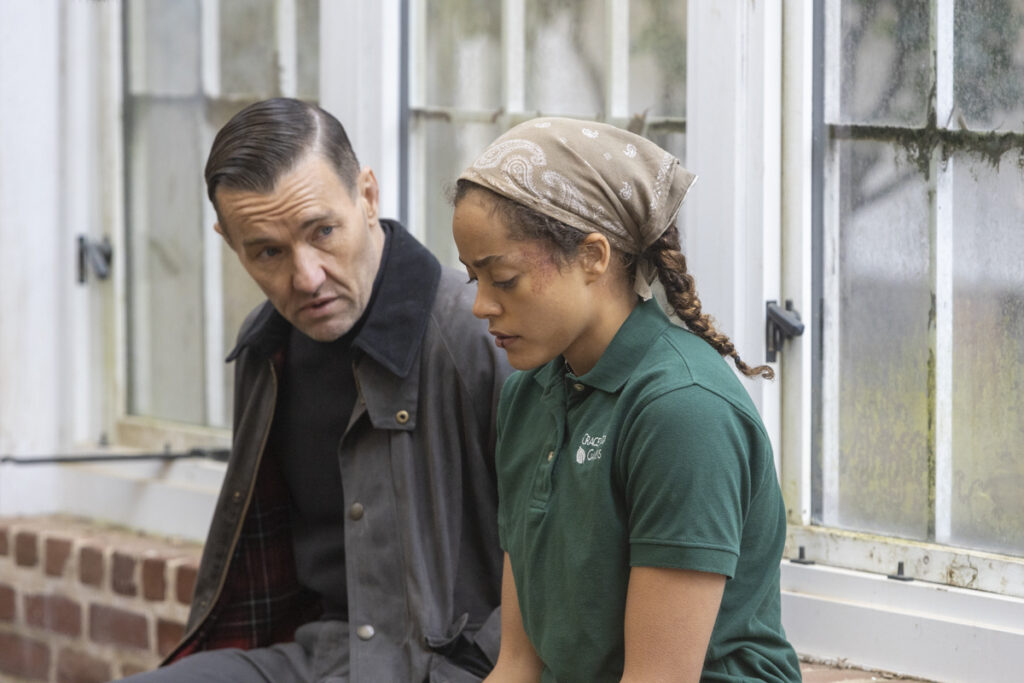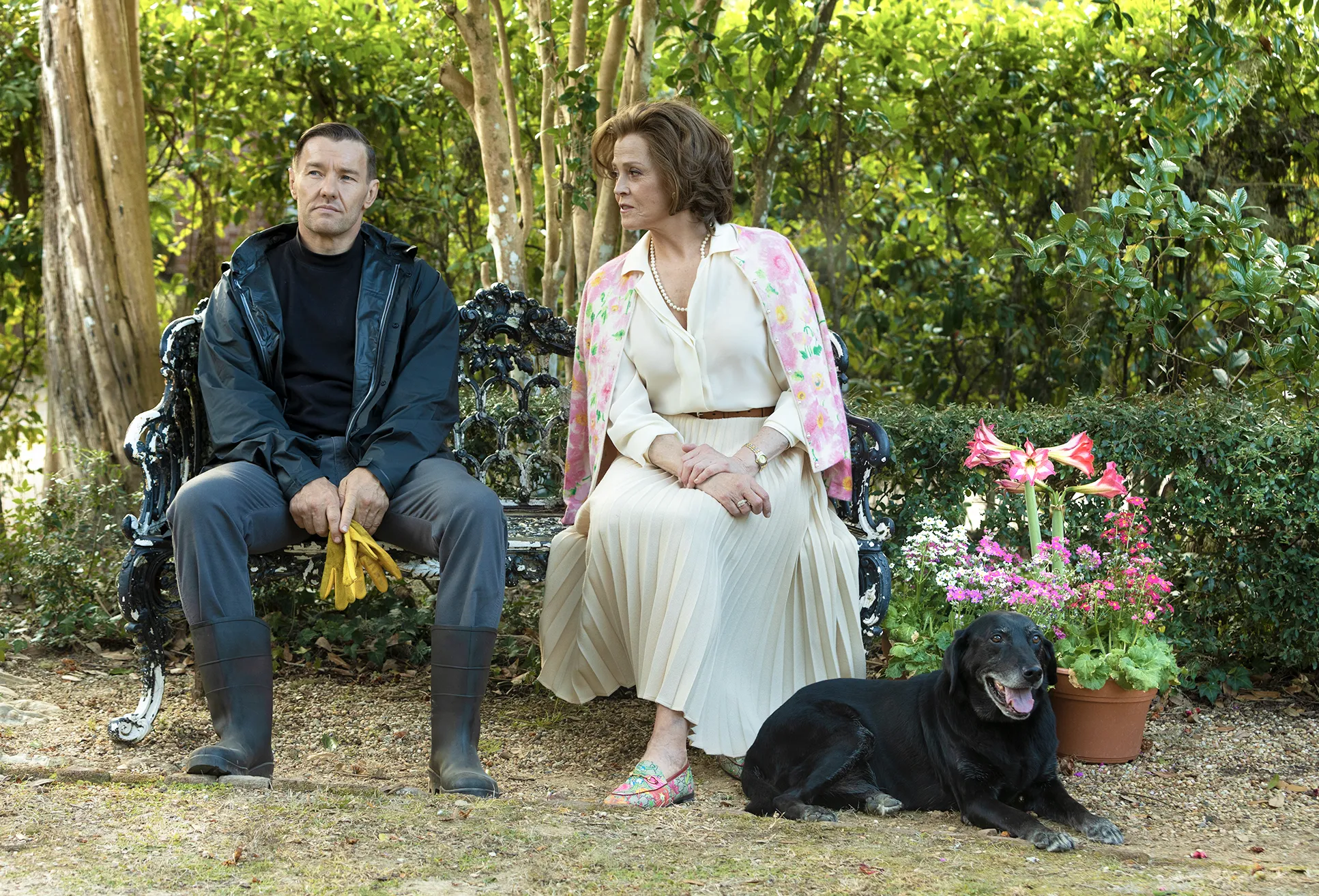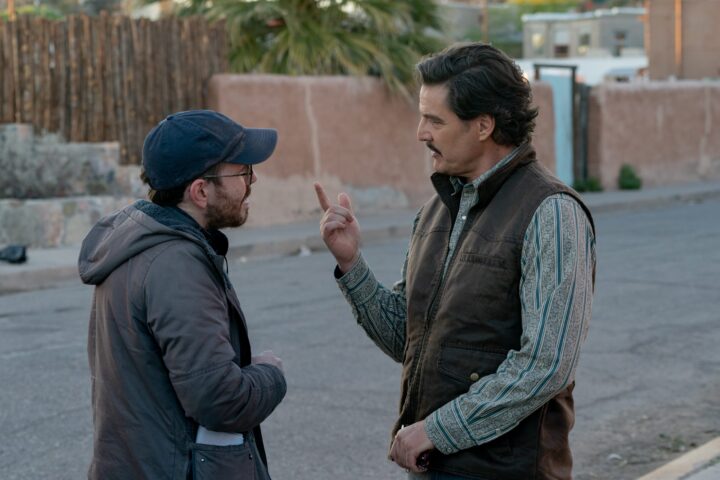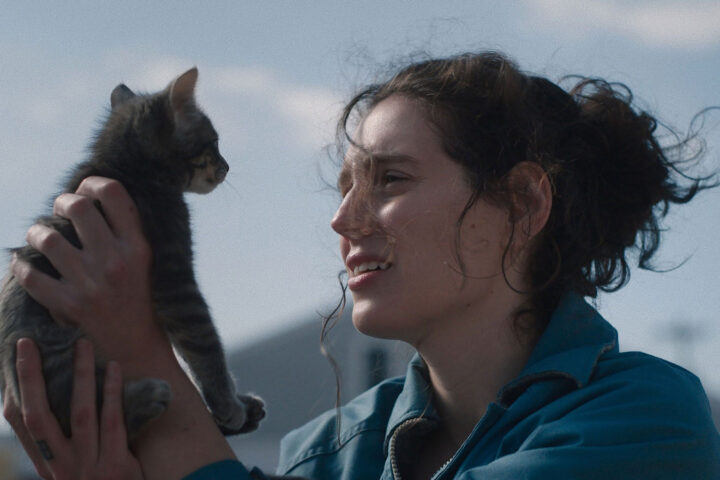At 76, Paul Schrader remains the most consistently intriguing American screenwriter working today and perhaps of the last half-century. A standard bearer of the galvanic 70s Hollywood renaissance, his contributions to American film history are lionized and legendary.
In the past decade, the filmmaker’s informal trilogy—which began with 2017’s First Reformed, which found Ethan Hawke a radicalized fallen priest and continued with 2021’s The Card Counter, featuring Oscar Isaac as a tormented former soldier on the down low as an Atlantic City poker shark, now concludes with Master Gardener’s Joel Edgerton as a reformed Neo-Nazi turned botanist—has been quintessential Schrader, which is to say excursions into the trouble of three reluctant anti-heroes enduring the proverbial dark night of the soul (or “God’s lonely man,” as Schrader coined in Taxi Driver) in collisions of past, present and conscience.
The master has lost none of his thematic sharpness, the pictures incisively contemplating climate change and the destruction of the planet, the fallout from American military prisoner torture tactics and, in the new film, racial hate and the steep cost of renewal. Each, in pure Schrader fashion, is about hard fought redemption through the atonement for past transgressions, which always involves a savior complex.
In Schrader’s world, men are haunted, hanging on by the bottom rung and living underground and out of sight. And usually, as happens, a woman also in need of healing will appear; broken souls will rejuvenate. Violence is critical to such expiation, sometimes on the self and other times, the world.
One might be tempted to call this absolution gauntlet the Schrader formula, but that’s simply too reductive for a genius filmmaker with far more on his mind than any of his American contemporaries, one whose personal and social narrative interrogations remain richly convicted fifty years into a much-lauded career.
While his new film may be a bit lesser than its pair of recent predecessors, it remains more of an artist’s provocation than any other mainstream American film this year. In Master Gardener Schrader may be crafting in a lower key that can sometimes suggest curious detachment, the story elements—the threat of white supremacy an existential and growing cancer as well as the film’s expansive view of personal and moral resurrection from such—couldn’t be more important. The film may alternately compel in fits and starts, but it is always watchable and sometimes more.

The superb Australian actor Edgerton is Narvel Roth, an accomplished horticulturist in a very gothic, very southern former plantation of sorts, replete with an expansive, lovingly landscaped floral collection over which he fastidiously presides, at the beck and call of the property’s grand dame matron, Norma Haverhill, played by a direct, imperious Sigourney Weaver. Narvel is a strong and silent type, who ruminates at length both on voiceover (narrating his written journals, a Schrader staple) about the many nuances of each type of flower.
Clearly a master gardener, he is also a bit of an enigma, a many of few words and apparently fewer needs. Norma, on the other hand, needs Narvel for sexual fulfillment, the pair whiling away the balmy nights carrying on clandestine bedroom encounters. What exactly is their arrangement? One of power and subjugation? A meeting of the minds (and bodies)? Why did such a domineering dowager take him on? How and when did Narvel’s late life passion for flowers and plants take root?
Complications ensue when Norma asks Narvel to look after her wayward grand niece, Maya (Quintessa Swindell) whom she has never met yet feels a guilty obligation to upon the death of the young woman’s hard-living mother. While Norma may seek to assuage a toxic family history, Narvel is initially befuddled, offering Maya an apprenticeship. Wholly unsure why she has been summoned by a long lost relative, she works hard to learn horticulture but she has her own troubles, namely a former drug habit and cadre of dangerous former friends and dealers. She hasn’t fully left that life behind, and it is here that Narvel’s protective instincts emerge in a series of slow burn reveals about the life he has left behind, one involving racist hate crimes, witness protection and more. To Norma’s unease, the unlikely pair grows increasingly symmetrical.
While Master Gardener contains most of Schrader’s expected narrative and character obsessions, one might argue the dramatic impact on this outing is slightly blunted; somehow the execution feels writ small rather than the visceral gut punch we have come to expect in a Schrader final act, from the nihilism of First Reformed‘s self-flagellation to The Card Counter‘s grisly comeuppance to Taxi Driver‘s final massacre to Hardcore‘s maniacal, neon-tinged bloodbath. By contrast, Master Gardner‘s finale feels more requisite than rousing, and a tad plodding. And the central relationship feels perhaps written more than real; we are told two characters have fallen in love but I am not quite sure the film makes the sale.
As a screenwriter, Schrader has lost none of his trademark incisive edge and remains unafraid to peer into the abyss, frequently with radical, downbeat integrity on the subject of whether redemption, for some, is ever truly possible. In Master Gardener‘s denouement, Schrader surprises with appealing tenderness, even if we don’t perhaps fully believe it.
3 stars



